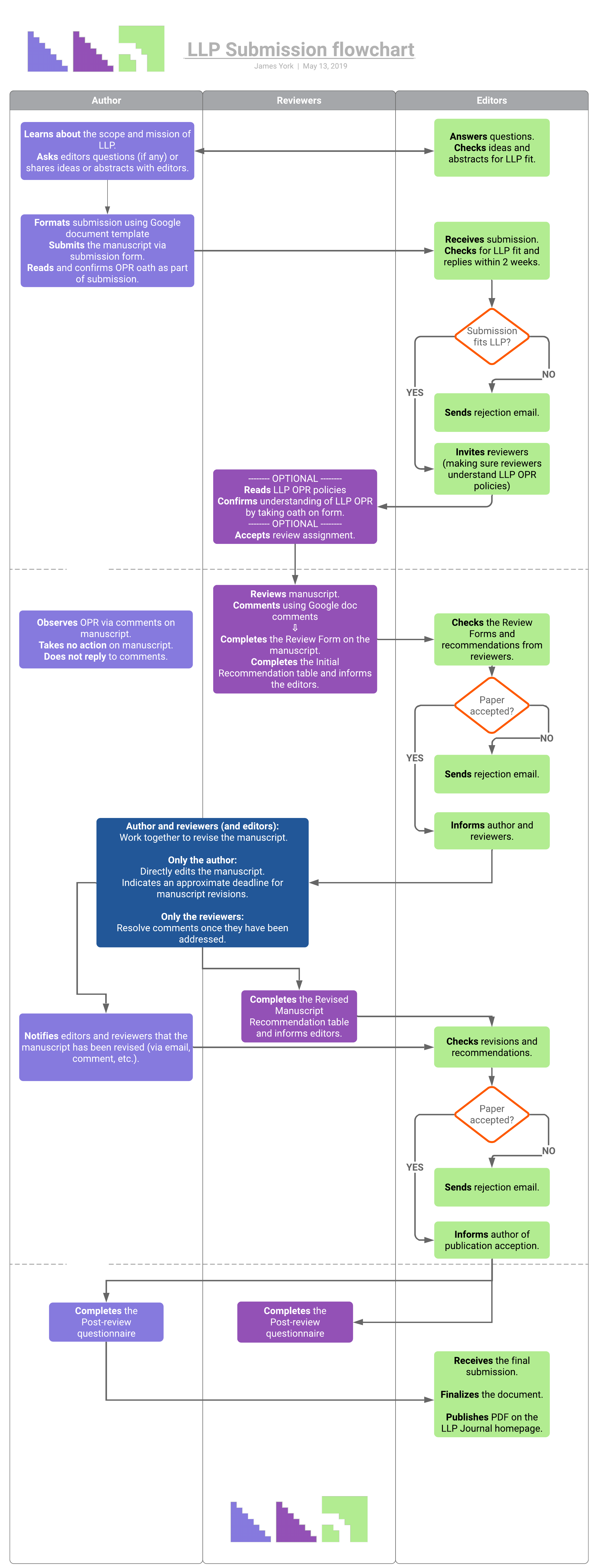Submission steps
1. 📖 Read the submission guidelines information
We accept three different submission types. You can find out more with the submission guidelines below.
2. 📧 Contact the editors
Before going through the process of formatting your manuscript, please get in touch with us informally to check suitablility first.
3. 📝 Create your manuscript
We created a template for each submission type.
4. 📤 Submit your manuscript
Please click the button below to submit your manuscript.
Submission guidelines
Submission types
🏞 Playground items (Easy Mode)
A playground presents methods, materials, concepts or experiences based in practice and grounded in theory that can serve to inform, inspire or challenge practitioners and/or researchers. How a playground is based in practice, and how it is grounded in theory, can then be very individual, as long as these two things are given. There must be value in it for the reader, not only for the author.
Want to know more? Head over to the playground page
🚶♂️ Walkthroughs (Normal Mode)
Submissions in this category show what ludic language pedagogy looks like in hi-resolution. We appropriate the game design metaphor of iterative playtesting; where teachers actively improve their teaching through a process of iteration. Walkthroughs are organised into the following key sections:
Background → Design → Playtest → Evaluation → Next steps.
We advise teachers to include extensive media and teaching materials, such as:
Curriculum and syllabus, lesson plans, teacher notes (e.g., diaries and observations), worksheets, student work (e.g., projects, reports, presentations, completed worksheets), tests, quizzes, grading rubrics, photos, videos, example interactions, and anecdotes.
📔 Articles (Hard Mode)
Submissions in this category typically map out and find gaps in relevant scholarly literature, have clear and compelling research questions, present a procedure and data to answer those questions, and end with a thoughtful discussion related to continued research and teaching. Alternatively, a submission might explain or critique a phenomenon or trend in the field. Topics include research, pedagogy, theory, and practice. Manuscripts should have clear implications for practice. We welcome all research approaches, methods, and contexts.
We welcome papers that aim to:
- push the field forwards
- question the field’s current trajectory
- end with more questions than they started with
- create a manifesto or a call to action.
📺 How to copy the templates
Detailed Submission Process
A step-by-step guide to our open peer review process:

For details on peer review, ethics, copyright, archiving, and publishing policies,
please see our Journal Policies page.
-
First preference ↩